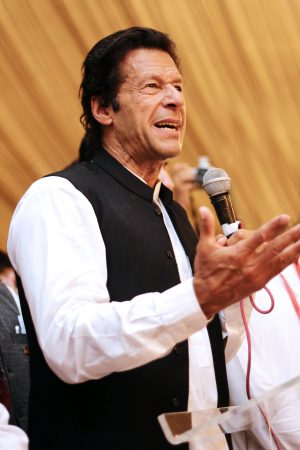The ongoing political instability in Pakistan, which has been fueled by the confrontation between the Shehbaz Sharif-led government and Pakistan Tehreek-e-Insaf (PTI), appears to have eased in recent weeks. The improvement in the situation is largely due to a significant engagement process initiated by both the government and the PTI, aimed at resolving the political deadlock.
The PTI has been organizing protests to urge the government to release its jailed founder and former Prime Minister Imran Khan, who has been imprisoned for over two years. He is facing multiple charges related to corruption and terrorism.
The government has alleged that the PTI’s protests are intended to destabilize Pakistan, and has repeatedly cracked down on the party and its supporters to prevent them from taking to the streets.
So far, two rounds of discussions have been held to address the political conflict between the PTI and other political parties, primarily the Pakistan Muslim League-Nawaz (PML-N) and the Pakistan People’s Party (PPP), both of which are currently part of the governing coalition.
In a notable development, the PTI has committed to presenting its demands in writing during the next round of talks, which are expected to begin on January 16. The demands include release of detained party workers and a judicial commission to investigate various legal cases against them. The PTI’s willingness to formalize demands suggests that they are seeking resolution through dialogue.
As for the government, it has said that discussions with the PTI will proceed unconditionally. Government officials maintain that if dialogue remains constructive, all pertinent issues can be deliberated upon.
Yet tension is evident.
Recent statements from PTI leaders suggest a growing skepticism regarding the value of engaging in negotiations with government representatives. They are alleging that the government has obstructed their access to jailed leader Imran Khan. “There is no alternative but to take these cases to an international level,” Aleema Khan, Imran Khan’s sister, said last week, accusing the government of restricting them from meeting with the PTI founder.
In response to these developments, PML-N Senator Irfan Siddiqui, who serves as spokesperson for the government’s coalition dialogue committee, has expressed concern over the PTI’s approach to dialogue. Comments by senior PTI members could undermine constructive dialogue efforts, he said.
The ongoing dialogue between the government and the PTI presents a complex scenario marked by an underlying suspicion regarding the PTI’s commitment to constructive engagement. Historically, the PTI has opted for agitation and street confrontations as a means of political expression, which has often escalated into violence after facing state repression.
There is a perception in government circles that Khan’s sudden willingness to engage in dialogue and his party’s softened stance in parliamentary discussions is an acknowledgment that it cannot achieve political change or resolve its challenges through agitation alone. The shift in the PTI’s position raises questions about its sincerity to engage meaningfully in discussions.
Moreover, while certain legal actions against Khan can be perceived as politically motivated, there are some credible allegations against him that could lead to his formal conviction.
In the Al-Qadir Trust case, for example, Khan has been accused of involvement in facilitating a settlement between the United Kingdom’s National Crime Agency and Pakistani businessmen, resulting in an estimated loss of over $200 million to the national exchequer. Government officials assert that Khan’s conviction in this matter is not only likely, but imminent.
It appears that the PTI’s engagement with government authorities will not shield Imran Khan from facing significant legal repercussions. His defense in various cases remains tenuous at best. Neither the government nor influential military factions seem inclined to consider leniency toward him.
Thus, while dialogues may unfold on one front, they coexist with inevitable judicial proceedings that could profoundly impact both Khan and his party’s future trajectory in Pakistan’s turbulent political landscape.
As millions observe these unfolding events, there remains hope that both parties can navigate their differences toward a peaceful resolution amid this tumultuous political landscape.

































